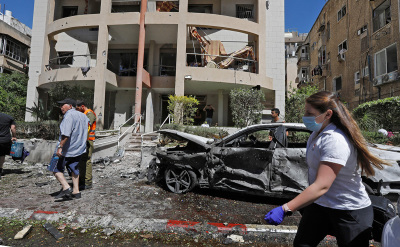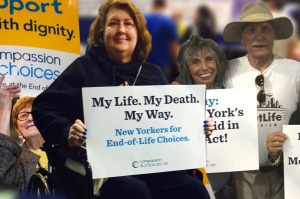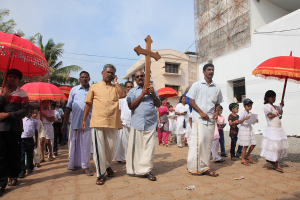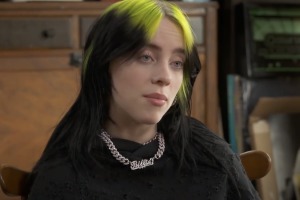In Israel: This time it was different

Everyone we met with at some point in the conversation said, “This time it was different.” As a delegation of two organizations, The Philos Project and Passages, that bring young, Christian leaders to Israel, we were curious about how the recent conflict had been felt on the ground. The three weeks of violence that started with a property dispute over four homes in the Sheik Jarrah neighborhood of Jerusalem spilled onto the Temple Mount where Israeli police and Muslim worshippers clashed. Then came the riots, the rockets from Gaza, and the attacks on Jews around the world. The sheer number of rockets alone, nearly 4300, should have been enough to say, “This time was different.” But that doesn’t really get at the heart of the issue. This time coexistence was questioned. This time the veil separating anti-Zionism and anti-Semitism dropped. This time no one was safe.
Lod is not a tourist destination, but it is one of the oldest cities in the world. The city lies at a crossroad intersecting the ancient highway along the coast and the highway coming out of the mountains where Jerusalem sits. Given that it’s just outside the Ben Gurion Airport, most pass by on their way to somewhere else. Lod is also a mixed city. Jews and Arabs live side by side. Apartment buildings and grocery stores are full of Jews and Arabs.
In Lod, we met Tahael. Tahael is an orthodox Jewish woman who moved to Lod with her husband and two children so that her children could grow up in a mixed community. She was at an event for Jewish youth when the riots began. They barricaded doors and waited for the police to escort kids home. The local Imam is pretty radical and regularly called for men to embrace violence. This time they did. Jewish cars were targeted and burned. A Jewish apartment was ransacked and set on fire. Five synagogues were burned, some severely. Then came the rockets from Gaza. Riots ran the streets and rockets fell from the sky.
During the chaos, Tahael went with her family to the bomb shelter. She was there with her Arab neighbors. Just days earlier she spoke with her neighbors, helping each other carry groceries up the stairs. But in the bomb shelter, the Arab men of the apartment building are absent. Are they in the streets? At the riots? The pavers in front of the apartment building have been taken up and used as stones. “I can’t look at my neighbor anymore”, Tahael said with pain in her eyes. This time it was different.
Also in Lod, we met Yoav. He is Jewish. His dad owned a computer repair shop, the last shop in a strip of repair shops. Next to Yoav’s dad’s shop is Suhel’s shop. Suhel sells and repairs tires. He is Arab. The only Arab shop in the strip. During the riots in Lod, perhaps as retaliation to the attacks on Jews, old tires were stacked up against Suhel’s shop and set on fire. In a matter of minutes a lifetime of labor went up in smoke. Yoav is into live action role play (LARP) and built a studio in the back of his dad’s shop. It too was completely destroyed.
The next day as Suhel was trying to salvage anything he could in the shop, everything was covered in black soot. He tearfully struggled to understand how this could have happened. To help his neighbor, Yoav started a small fundraising campaign by reaching out to his fellow online LARPers. Donations from Jews and Arabs around the country began to pour in. His small campaign went viral. Two shops unintentionally modeling coexistence were destroyed. And yet, the nation rallied to support the rebuilding of both. This time it was different.
Ashkelon is another one of those ancient cities. In the Bible it is described as one of the capital cities of the Philistines. Today it is a thriving city on the edge of the Mediterranean and, until the last war, just outside the reach of Hamas rockets. It was in Ashkelon that we met Roz. Before COVID shut down the tour industry in Israel, Roz was a guide. Those who knew Roz before the recent conflict remarked, Roz is more serious now. The last war had taken its toll. He actually lives in one of the small farming villages right on the border with Gaza. His kids, like everyone else in the “Gaza Envelope” deal with PTSD minus the “P.” There is no “post” in the trauma there, always present. Roz talked about how he once took his kids to a playground in Jerusalem. They were reluctant to play on all the fun obstacles and slides. After a while he asked them why they were not playing, his kids, 5 and 7 years old, said, “It’s not safe. There is no [bomb] shelter.”
Living so close to the border with Gaza, Roz is used to the rockets and mortars regularly launched at his village by one of the terrorist organizations that is ruling Gaza. The Iron Dome rocket interception system doesn’t protect his village, but it does protect Sderot, Ashkelon, and the many Jewish and Arab towns and villages that dot the landscape of Southern Israel. However, 4300 rockets nearly overwhelmed the Iron Dome system. This time it was different.
Amal lives in a Bedouin town. The Bedouins are a nomadic Arab people who settled down mostly in the southern and northern parts of Israel. Many have integrated into Israeli society and serve in the IDF. As we sat in her family’s ancestral home enjoying tea and sweets, Amal described her life. While most girls from her town were married off after 6th grade, Amal finished school. She overcame many obstacles to become a nurse and is one of the first in her town to get a driver’s license. For many, Amal is a trailblazer for women’s rights in Bedouin society. But she is also an advocate for coexistence.
Amal chose to send her daughter to a Jewish school so that she would learn the value of coexistence. Yet, it is not hard to imagine how the recent conflict fostered suspicion and threatens coexistence. Amal’s daughter, a 5th grader, was told by her teacher to go back to Gaza. When confronted, the school did not act. The matter is still unsettled and Amal’s daughter refuses to go to school. The pain and frustration of living in constant fear of rocket attacks is very real. So is the fact that Jews and Arabs both are under threat from Hamas.
The majority of the rockets launched out of Gaza are low-tech. Light poles are cut down and filled with explosives and a propulsion system are hurled at Israeli population centers. The deaths of Arabs, children, and even Gazan kids from these faulty rockets are worth it to Hamas if even one Jew dies or leaves Israel. The new high-tech rockets and anti-tank missiles used this time are made by Iran and smuggled into Gaza. These rockets can reach Tel Aviv and Jerusalem.
Amal described how one of the rockets landed near her home. This time it was different. Rockets reached her too. When asked how she felt about being targeted by Hamas she didn’t answer. More likely, she couldn’t. Hamas has long arms.
As we were meeting with individuals impacted by a month of violence that sought to destroy coexistence, a new government in Israel was being formed. A coalition that, for the first time, included an Islamist Arab Israeli political party. Unified in its opposition to the former Prime Minister Netanyahu, this government, nevertheless, is formed the very moment coexistence seems impossible.
In those first few days it seemed that the fabric that made Israel a model of pluralism was torn. Yet all along the way we heard stories of Jews and Arabs choosing coexistence. As the fabric of Israel was torn, there were those stitching it back together one meeting at a time. This time it was different, meaning Israel is at a crossroads. Down one path, Hamas wins and coexistence becomes a memory. Down the other path, coexistence wins and eventually Hamas becomes a memory. People of good will can support only one of those paths.



























